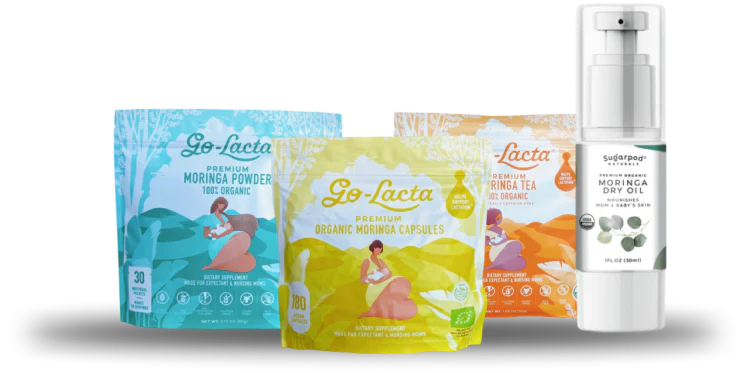
Benefits of Lactation Powder for New Moms: A Complete Guide
One of the most common issues nursing mothers have is producing enough breast milk to easily feed their baby. For years, supplements to help that process have been used. They work by stimulating the hormone prolactin, which in turn, kickstarts the making of breast milk. Moringa for lactation is a safe, natural galactagogue, relied on for centuries by nursing mothers. GoLacta offers nutritious, organically-grown Moringa products that easily fit into a busy life.
Introduction – Understanding Prolactin and Its Role in Breastfeeding
Prolactin is a hormone produced in the pituitary gland that’s responsible for helping stimulate the development of breasts in a young girl and later, the production of breastmilk during pregnancy and in the post-partum period. Very often, the stresses of new motherhood can impact hormones overall and prolactin levels specifically, creating difficulties in producing enough milk when nursing. It’s a very common concern. Several natural supplements have been successfully used to safely kick prolactin production back into gear, such as Moringa for lactation.
-
What is Prolactin and Why is it Important for Lactation?
-
Common Reasons for Low Prolactin Levels
-
Can Supplements Help Increase Prolactin Naturally?
-
Potential Benefits of These Supplements
-
Are There Any Risks or Side Effects?
-
Who Should Avoid Taking These Supplements?
-
What Studies Say About Fenugreek and Milk Supply
-
The Evidence Behind Moringa and Lactation Support
-
Does Fennel Actually Work for Increasing Prolactin?
-
Recommended Dosages for Nursing Mothers
-
When to Start and Stop Taking These Supplements
-
How to Monitor Your Baby’s Response and Milk Supply
-
Best Foods That Naturally Support Prolactin Levels
-
The Role of Hydration and Nutrition in Lactation
-
How Frequent Breastfeeding Helps Maintain Prolactin
-
When to Speak to Your Doctor or Lactation Consultant
-
Medical Conditions That May Affect Prolactin Levels
-
Balancing Supplements with a Healthy Postpartum Diet
-
Key Takeaways for Nursing Mothers
-
How to Make an Informed Decision
-
Final Thoughts on Supplement Safety and Effectiveness
Prolactin is a hormone produced by the pituitary gland that helps stimulate lactation. When prolactin levels are low, it may be challenging to produce enough breast milk during nursing.
Various hormone imbalances, such as those caused by an underactive thyroid, certain medications, or the stress of new motherhood, can interfere with the production of prolactin.
Over the years, various supplements have been shown to naturally get prolactin back to normal levels to assist in lactation. These natural supplements include brewer’s yeast, fennel seeds, fenugreek, and Moringa. Moms may find that one supplement works better for them than another.
Popular Supplements That Claim to Boost Prolactin
Several natural supplements have routinely been recommended to help increase prolactin levels. Scientific research is ongoing, but there is enough anecdotal evidence over the years to suggest their effectiveness.
Fenugreek – The Most Popular Lactation Herb
Fenugreek is an herb containing plant compounds that mimic estrogen and stimulate milk production. Besides supplements,, the seeds can be soaked in hot water, then consumed as a tea.
Fennel Seeds – A Traditional Remedy for Milk Supply
Fennel seeds are a galactagogue, usually consumed as a tea.
Moringa – The Superfood for Breastfeeding Mothers

Moringa is another galactagogue. It’s also considered a superfood, so not only does it stimulate lactation, it boosts the nutritional quality of breast milk. It can be consumed as a tea or powder that can be added to smoothies, soups, and baked goods.
Brewer’s Yeast – A Natural Source of B Vitamins and Minerals
Brewer’s yeast contains essential B vitamins which may help with milk production. It’s thought that vitamins and minerals replace nutrients lost to post-partum stress which can impact lactation.
Shatavari – Ayurvedic Herb for Hormonal Balance
In Ayurvedic medicine, Shatavari is called the “queen of herbs” for its use in helping various aspects of female health, especially the hormonal system. As a galactagogue, it can stimulate lactation.
Are Prolactin-Boosting Supplements Safe?
Prolactin supplements like Moringa for lactation are considered safe, but, as with anything, it’s always smart to check with your doctor first; some supplements may interact with certain medications.
Prolactin levels may drop due to fluctuating hormones and loss of certain nutrients. Supplements like Moringa address these conditions; as a superfood, Moringa helps support the mother’s health and improves the nutritional quality of the breast milk.
Supplements for lactation are generally safe but go slowly to see how they affect your system. Moringa is high in fiber, so build your intake a bit at a time. Certain medications, like blood thinners, may be affected by lactation supplements like fenugreek; talk to your doctor.
People taking blood thinners or who have thyroid issues should consult a doctor before considering certain lactation, especially supplements like fenugreek.
Scientific Research on Prolactin-Boosting Supplements
Scientific research on the effectiveness of these supplements is ongoing. Overall, however, an increase in breast milk production has been observed. Everybody is different, and some supplements may be more effective than others.
Evidence is mixed, but some studies have shown fenugreek to increase milk production, especially in the first weeks after birth.
Studies have shown that, as a galactagogue, Moringa can stimulate the production of breast milk by increasing prolactin levels.
Fennel contains a plant-based compound that mimics estrogen and stimulates prolactin production.
How to Use Prolactin-Boosting Supplements Safely
Check with your doctor first, and always start with the recommended dosage to see how your system handles it. Also, see how your baby reacts; for example, fenugreek often gives breast milk a different “taste” which they may not like.
Each supplement is different, so dosages will differ. For Moringa powder, 1-2 teaspoons per day is recommended, but start on the low end to see how your body handles it.
Experts generally recommend starting lactation supplements 3-5 days postpartum. You can stop either when your milk supply has become steady, or as you begin weaning your baby.
Watch weight gain, feeding behavior, and diaper output to monitor that your baby is getting enough milk.
Natural Alternatives to Supplements for Boosting Prolactin

Support your breastfeeding journey with a balanced diet containing protein, healthy fats, and dark green vegetables. Staying well-hydrated is essential, as is getting rest whenever you can grab a few winks. Sticking to a regular breastfeeding schedule also keeps prolactin levels steady.
Lean meats, dairy, and whole grains should be part of your diet. Dark, leafy greens like kale and spinach, and healthy fats from avocado or olive oil also support prolactin.
Staying hydrated is important to lactation, as is good nutrition. You can kill two birds with Moringa: it’s a superfood that can be mixed in liquids or taken as a tea.
Prolactin is stimulated by the baby’s act of suckling and feeding; a regular schedule keeps prolactin levels steady.
Consulting a Healthcare Professional Before Supplementing
Struggling to produce enough milk is very common. Supplements, like Moringa for lactation, are considered safe, but it’s always smart to talk to your doctor first, especially if you take certain medications. Certain conditions, such as a thyroid disorder, can impact prolactin levels. And remember that proper nutrition and hydration are an important part of successful breastfeeding.
If you consistently have difficulty producing enough milk, talk to a professional about supplements to increase prolactin.
Pituitary tumors and certain thyroid disorders may impact production of prolaction, as may kidney disease.
A balanced diet, including lean protein, dairy, leafy green produce, whole grains, and healthy fats will make the supplements even more effective.
Conclusion – Should You Take Prolactin-Boosting Supplements?
Breastfeeding is a wonderful part of motherhood, helping you and your child enjoy beautiful bonding time. However, it’s not uncommon to experience frustration if you’re not producing enough milk; post-partum stress, fatigue, and more impact prolactin levels. That’s where a natural supplement like Moringa for lactation can really help, stimulating that hormone to release more milk.
Of course, it’s important to support yourself with a healthy diet, proper hydration, and a regular feeding schedule to keep milk production steady. Different supplements work differently, so you may have to experiment. However, Moringa doesn’t just stimulate prolactin, it’s a superfood that supports both your and baby’s nutritional needs. It can be taken as a tea or mixed into liquid covering your hydration requirements as well.
Producing enough breast milk is a very common problem. Lactation supplements can be useful in conjunction with a good diet, hydration, and rest (when you can get it!).
Talk to your doctor or a lactation consultant if you’re frustrated over the amount of milk you’re producing (or not). Consider any medications you’re taking and if you have certain physical conditions that might impact prolactin levels.
For years, supplements like Moringa for lactation have helped nursing mothers. As a galactagogue, Moringa naturally stimulates the production of breast milk. Additionally, it’s a superfood, packed with nutrients to support your health and the health of your baby.
It’s a simple, effective way to better enjoy your breastfeeding journey!

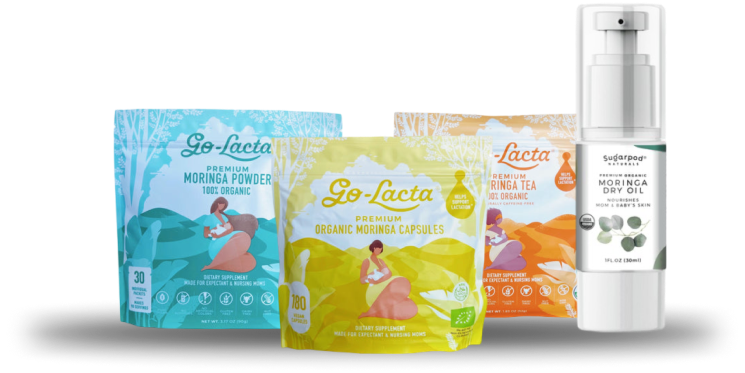
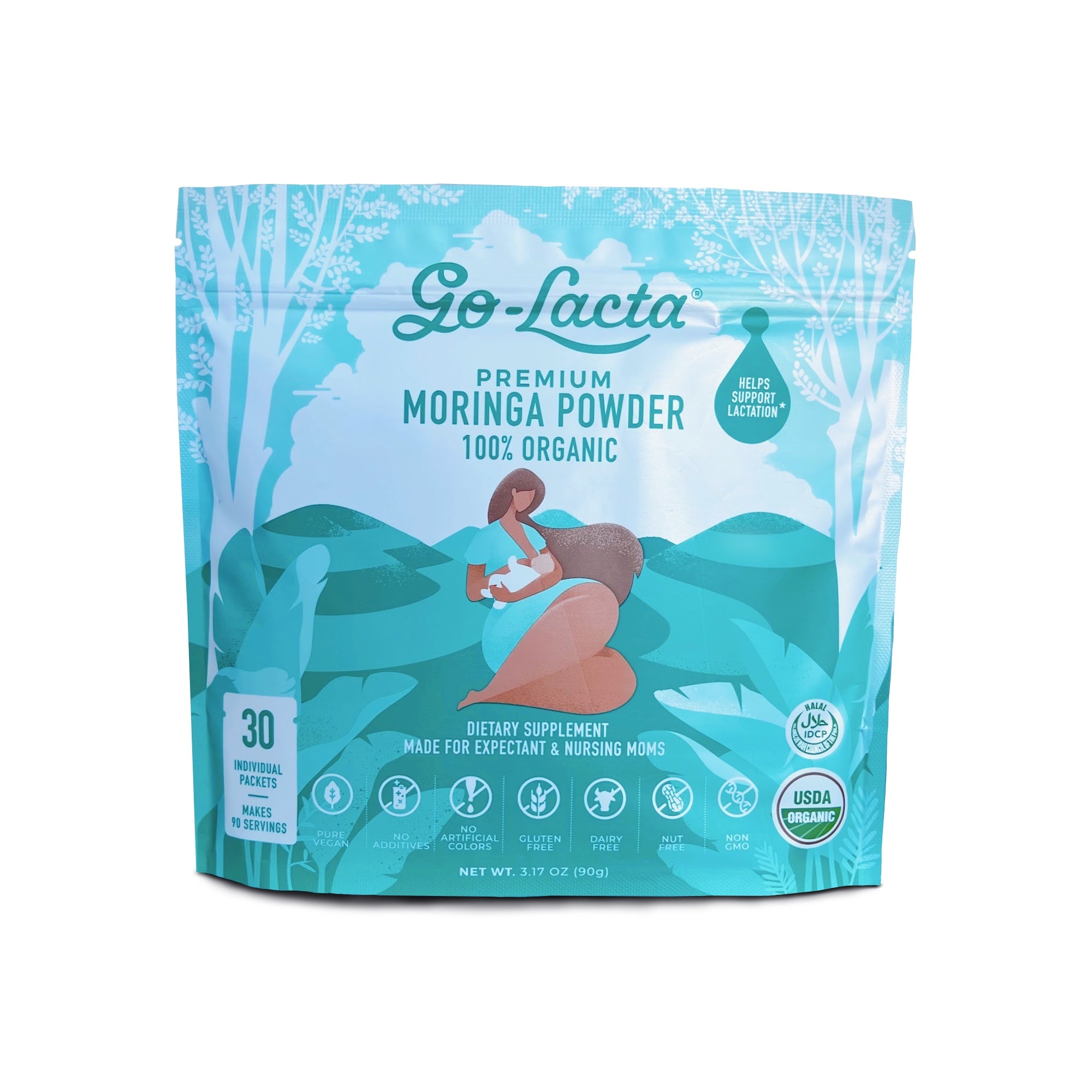
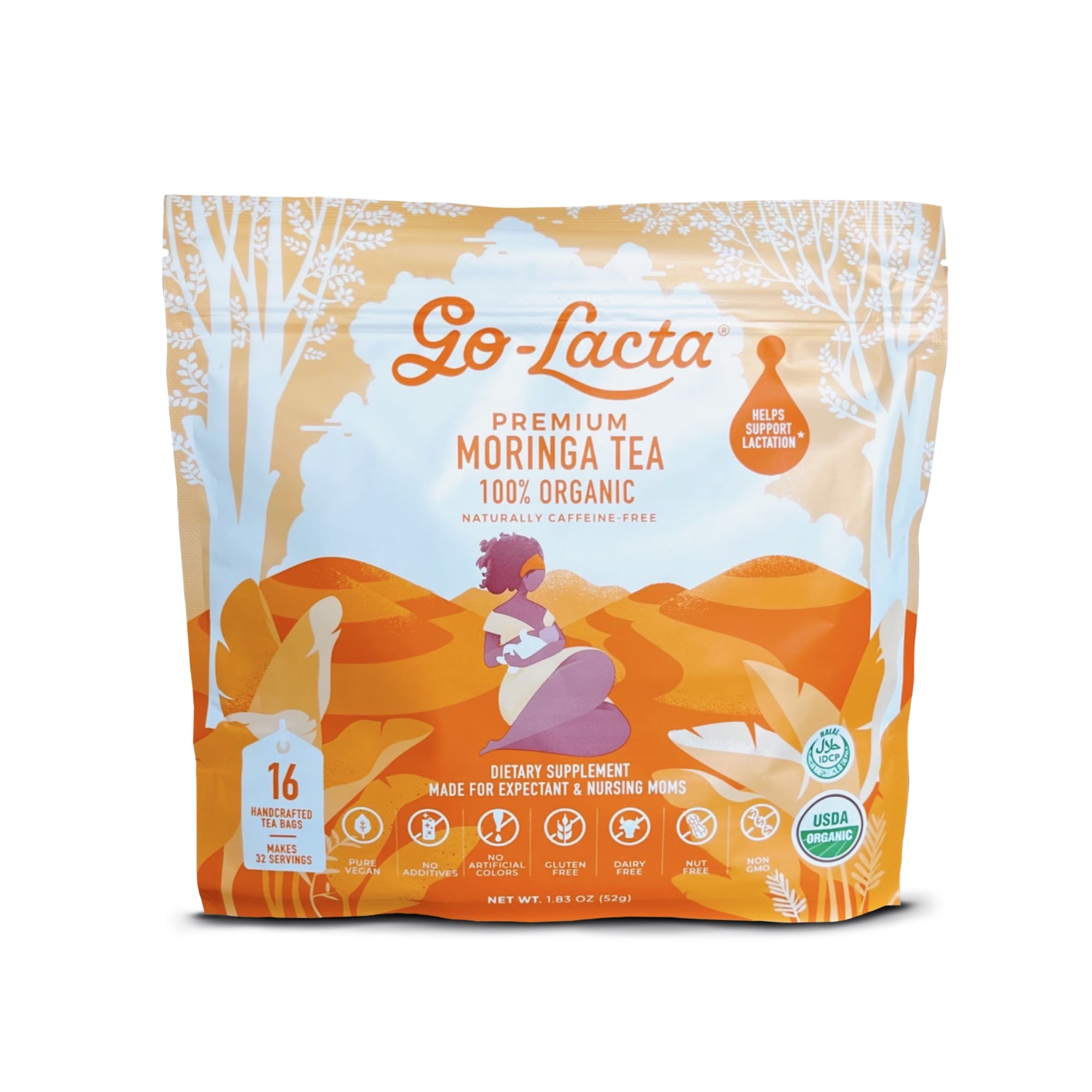
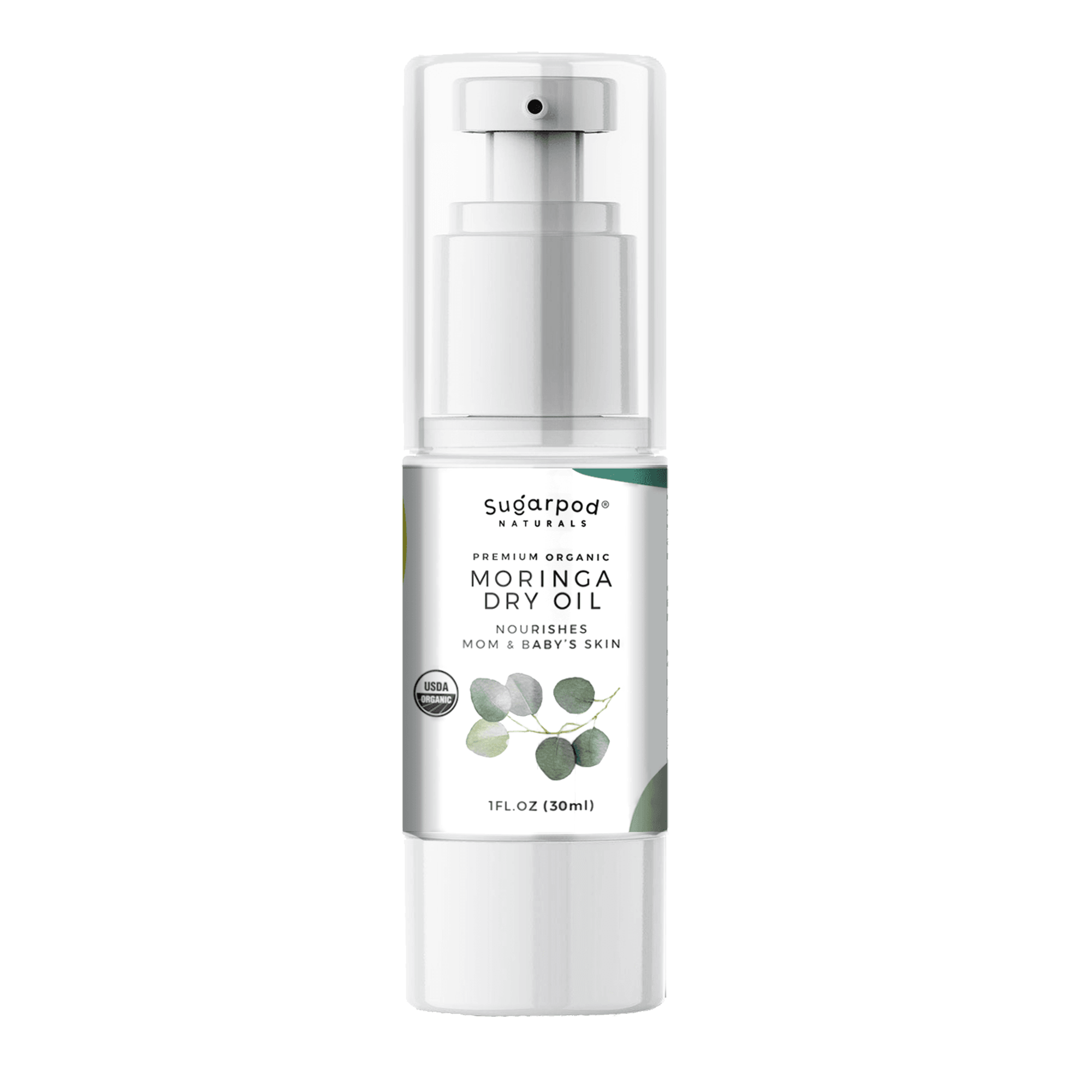

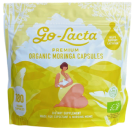
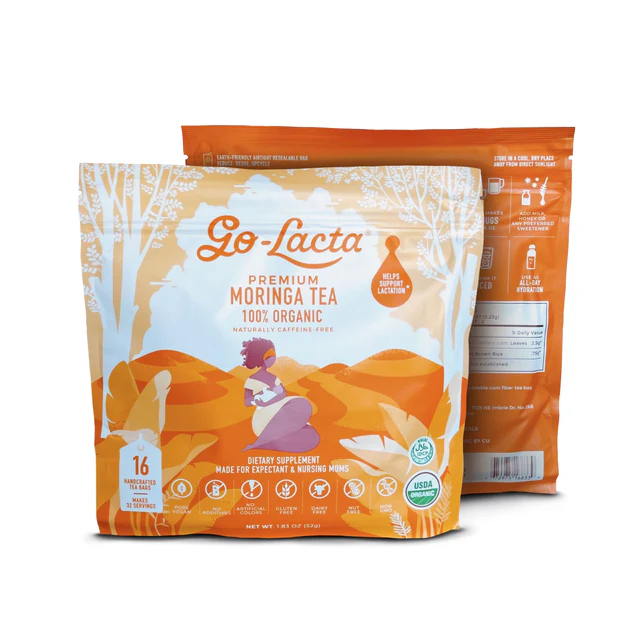
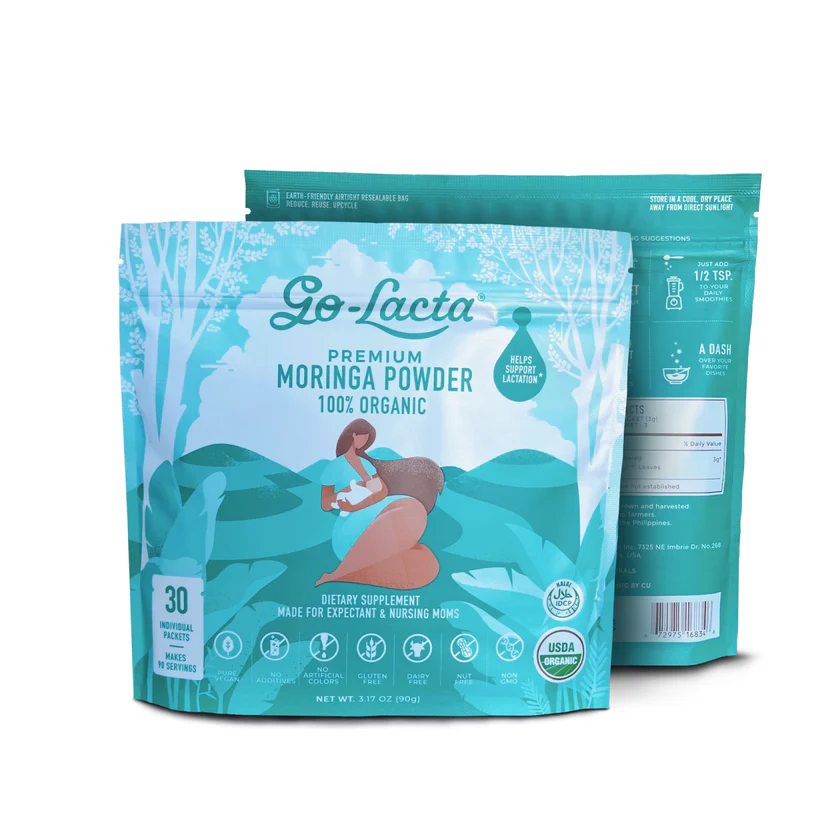
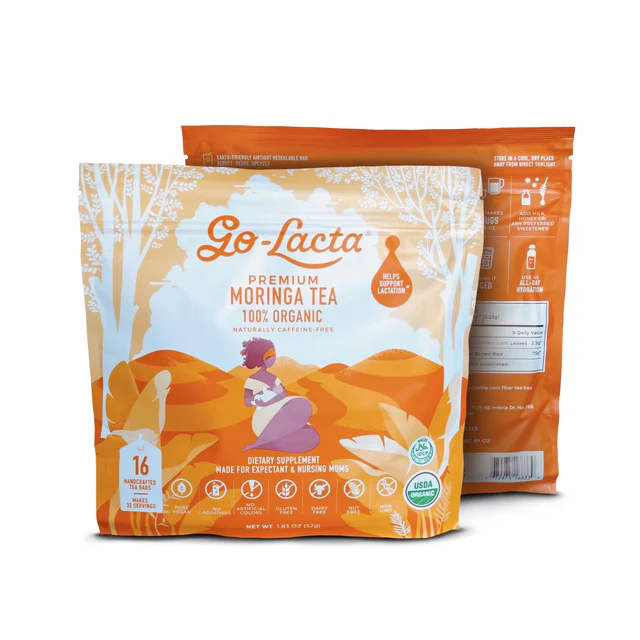

Leave a Comment
Your email address will not be published. Required fields are marked *